News
-
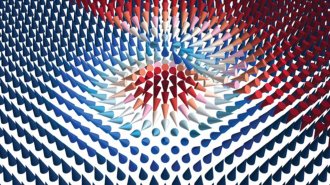 Physics
PhysicsA new magnetic swirl, or skyrmion, could upgrade data storage
Magnetic whorls in a new type of material could be easier to control than their predecessors.
-
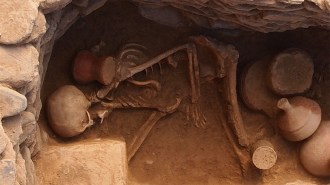 Humans
HumansDNA indicates how ancient migrations shaped South Asian languages and farming
Farming in the region may have sprung up locally, while herders from afar sparked language changes.
By Bruce Bower -
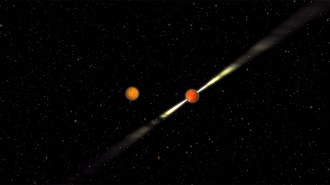 Space
SpaceEinstein’s general relativity reveals new features of a pulsar
Measurements that rely on the physicist’s theory of gravity are letting astronomers view a pulsar in ‘a whole new way.’
-
 Tech
TechA mini chemical lab could one day test for toxic nerve agents in the field
Portable lab equipment that detects nerve agents could help judge when it’s safe to return to previously exposed areas.
-
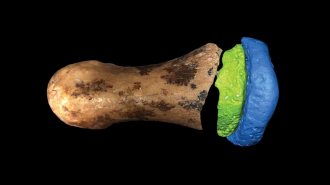 Anthropology
AnthropologyThis ancient Denisovan finger bone is surprisingly humanlike
Despite Neandertal ties, extinct hominids called Denisovans had a touching link to humans, a new study finds.
By Bruce Bower -
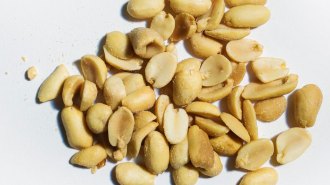 Health & Medicine
Health & MedicineLiquid mouth drops could one day protect people from peanut allergies
An immune treatment given as liquid mouth drops helped allergic children eat the equivalent of a few peanuts without having a reaction.
-
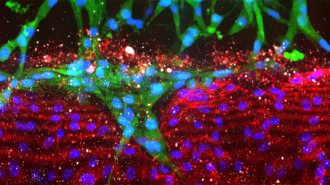 Health & Medicine
Health & MedicinePancreatic cancer tumors attack the blood vessels that deliver chemo drugs
Pancreatic cancer is nearly impossible to treat, but now we may know why. New research shows that the tumors destroy nearby blood vessels, making it harder for drugs to reach them.
By Alex Fox -
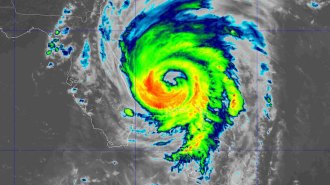 Earth
EarthHurricane Dorian’s slow pace makes it dangerous and hard to predict
Hurricane Dorian is one of several recent hurricanes that moved extremely slowly. Whether that's due to climate change isn't yet clear.
-
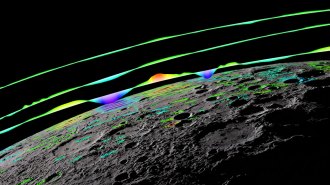 Space
SpaceIron sulfide may be keeping Mercury’s core toasty and its magnetic field alive
New estimates of how much heat Mercury’s core loses could explain why the tiny world has a long-lived magnetic field.
-
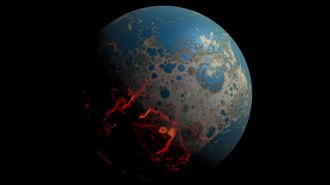 Earth
EarthHow ancient oceans of magma may have boosted Earth’s oxygen levels
Chemical reactions involving iron could have increased the amount of oxygen-rich compounds in the early Earth’s mantle, lab experiments suggest.
-
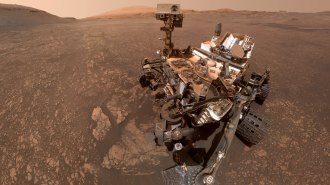 Space
SpaceOvernight changes in Mars’ atmosphere could solve a methane mystery
Overnight atmospheric changes on Mars can explain why two spacecraft measure vastly different concentrations of methane.
-
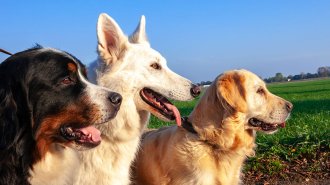 Life
LifeHuman meddling has manipulated the shapes of different dog breeds’ brains
By analyzing the shape of different dog breeds’ brains, researchers show how humans have manipulated the animals’ brain anatomy.